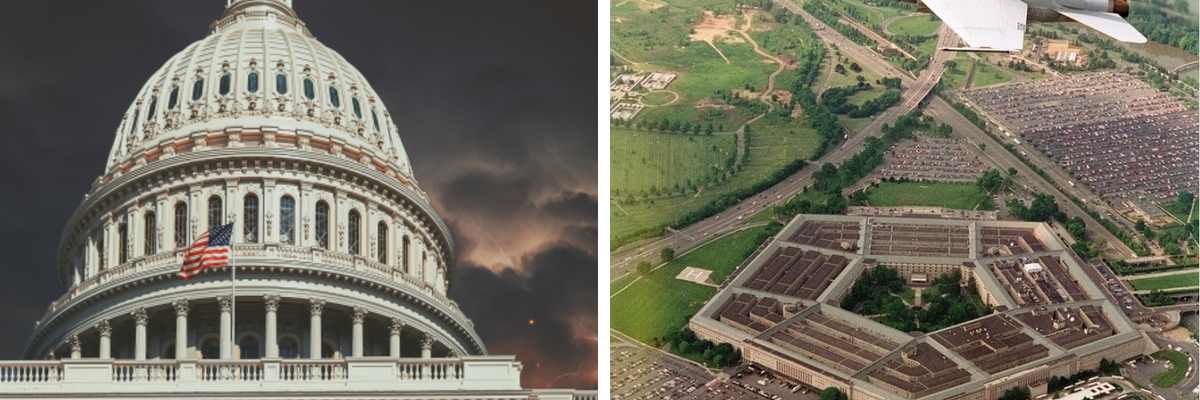Last week, the House Armed Services Committee heard testimony from members of Congress on their priorities for the National Defense Authorization Act (NDAA).
Lawmakers asked the committee to include their priority bills and amendments in the NDAA, focusing on various personnel issues including reducing jet noise at military installations, ensuring adequate housing for military servicemembers and their families, and preventing sexual assault in the Junior Reserve Officer’s Training Corps (ROTC). Members likewise appealed to the committee on issues ranging from artificial intelligence education in the military to our posture in the Indo-Pacific. Perhaps most interesting was Rep. Dan Crenshaw’s (R-Texas) request that the NDAA fund psychedelic research to treat servicemembers suffering from post-traumatic stress disorder and certain brain injuries.
The hearing offered some insight into where the legislation might stand as debt ceiling talks stall committee markup of the bill, originally scheduled for this Tuesday. But “Member Day” left much to be desired, as several pressing national security matters went unaddressed by lawmakers.
Chief among these is the issue of unfunded priority lists, or UPLs. Congress legally requires these wish lists for the Pentagon to outline items that it wants, but that aren’t important enough for the department to include in its formal budget request to Congress. Last year, the Pentagon requested more than $24 billion in wish list items, only to submit an additional $25 billion wish list in November. By mid-May, this year’s requests already totaled more than $17 billion.
These wish lists drive up military spending and undermine the budget process, all while muddying Pentagon strategy by diverting resources toward programs the department clearly doesn’t need, much less prioritize. That’s at least part of the reason the Pentagon publicly supported repealing wish list requirements in March, giving lawmakers all the more reason to take up the issue in the NDAA this year.
Time will tell whether lawmakers are willing to fight for repealing UPL requirements, but if Member Day is any indication of what’s to come, the public can count on the usual boondoggling in the NDAA this year; like, for example, mothballing the A-10 fleet and upping the F-35 buy in fiscal year 2024.
These aircraft resurface in the NDAA process every year for a reason. The F-35 is the most expensive acquisition program in Pentagon history, and it involves about 1,900 suppliers in 48 states. The A-10 program isn’t nearly as pervasive — which is partly why the Air Force has long pushed for divestment from the fleet. It seems to prefer the newer and more expensive F-35 to the A-10, not only claiming that the A-10 wouldn’t survive fights with adversaries like Russia or China, but also that the F-35 can fulfill the close air support mission for which the A-10 was specifically designed.
These statements are dubious to say the least, given that for the past five years the Air Force has refused to make public the results of a 2018 fly-off between the F-35 and the A-10. Further A-10 divestment and retirement would result in a major capability gap that the U.S. military is not prepared to fill.
Rep. John James (R-Mich.) appears to understand that, having cosponsored a bill last week to pause planned A-10 retirements until the Air Force comes up with a sufficient plan to replace the aircraft, which would maintain the military’s close air support capability. However, Rep. James used his testimony to call on the House Armed Services Committee to increase the F-35 buy from 83 to 89 aircraft in fiscal year 2024. He couldn’t have been more transparent about his reasoning, explaining that the F-35 increase is “in line” with the Air National Guard’s fiscal year 2024 wish list request.
His district is home to Selfridge Air National Guard Base, which houses a squadron of A-10s on the chopping block for retirement in the next decade. And while his commitment to maintaining his home base is expected, increasing the F-35 buy to replace the A-10s at Selfridge is not the answer to the base’s uncertain future. The fight to protect the A-10 isn’t over until it’s over, and pushing for unneeded F-35s outside the formal budget process is not a win for tax-paying constituents. There’s no doubt the committee will seriously consider it though, especially given that no one raised any questions about procuring more F-35s, much less made the case for protecting the A-10.
Year after year, Congress increases the Pentagon budget beyond the president’s request. Lawmakers grant military services and combatant commands billions of dollars in additional funding for wish list items that do little more than enrich military contractors and serve lawmakers’ parochial interests. Congress rubber-stamps outlandish spending on F-35 procurement, despite the program’s many flaws — and often at the expense of the reliable A-10 Warthog.
While the House Armed Services Committee will soon release and deliberate over the first iteration of the annual defense policy bill, it’s disappointing to see so little attention paid to the Pentagon’s extra-budgetary wish lists, unjustified A-10 divestment, and yet another year of runaway spending on the F-35 program — especially since all issues directly impact the nation’s debt.















